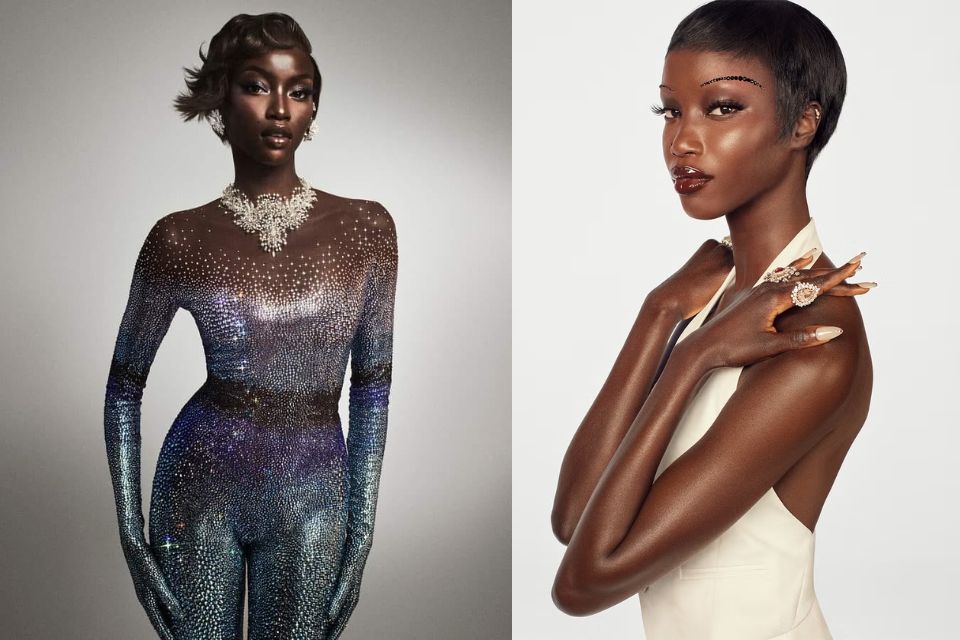In today’s global culture, where beauty standards are continuously being redefined, some individuals stand out not because they conform, but because they celebrate their uniqueness. One such topic that has sparked both curiosity and admiration is the identity of the blackest person in the world. Viral photos and social media buzz have highlighted a few individuals for their exceptionally deep skin tone, but there is also much misconception around the title. Is there an official recognition? What does science say? And most importantly, what message should this conversation send to the world?
Who Is Considered The Blackest Person In The World?
While there is no formal or scientific record declaring a single person as “the blackest person in the world,” some individuals have gained global attention due to their intensely dark and radiant skin.
One such person is a man from South Sudan known for his captivating, dark complexion that appears almost bluish-black in certain lighting. His pictures circulated widely on social media, often labeled with captions such as “The darkest man in the world.” His name is not always verified in every post, but some sources refer to him as Bolkiah, while others have included names like Godfrey Baguma or Anok Yai, though these attributions often get mixed up or misrepresented.
Another individual often celebrated is Anok Yai, a South Sudanese-American fashion model, praised for her flawless, deep complexion and elegant appearance. Though not “the blackest,” her skin tone is symbolic of African beauty and heritage, which she proudly embraces in the modeling world.
Is There A Guinness World Record For This Title?
The Guinness World Records organization has never officially recognized a person as the “blackest in the world.” There are several reasons for this:
- Subjectivity: Skin tone varies greatly depending on lighting, camera settings, and context. Declaring one person “the blackest” would require an objective and scientific approach that respects human dignity.
- Ethical Considerations: Guinness avoids records that may promote discrimination, stereotyping, or sensationalism of physical traits related to race or ethnicity.
- Respect for Human Identity: Skin tone is just one aspect of a person’s identity. Creating records around it could reduce an individual’s humanity to a single visual feature.
So, while viral headlines may suggest otherwise, this is not an official title, and it’s important to treat the subject with cultural sensitivity and scientific awareness.
Science Of Skin Color
Skin color is primarily determined by melanin, a pigment produced in the skin’s outer layer (epidermis) by cells known as melanocytes. The more melanin someone has, the darker their skin. Melanin production is influenced by:
- Genetics
- Geographical location
- Sun exposure and UV protection
- Evolutionary adaptation
People of African descent, particularly from regions like South Sudan, Niger, and Chad, often have some of the highest melanin concentrations, which is a natural adaptation to protect against intense ultraviolet (UV) radiation in equatorial climates.
Melanin-Rich Skin, More Than Pigmentation
Melanin is more than a color agent—it’s a symbol of strength, resilience, and ancestral pride. Historically, darker skin was unjustly stigmatized in many societies. Today, that narrative is changing. The beauty of melanin-rich skin is being celebrated across industries—from fashion and film to literature and art.
Campaigns like “Melanin Magic” and “Dark Is Beautiful” have contributed to increasing awareness and reshaping societal views. Celebrities like Lupita Nyong’o, Duckie Thot, and Nyakim Gatwech (often dubbed the “Queen of the Dark”) have used their platforms to promote self-love and acceptance.
Social Media’s Role In Making Perceptions Of Skin Color
Social platforms have helped highlight diverse forms of beauty, but not always in the right way. When images of people with deep skin tones go viral, they’re sometimes treated as curiosities rather than humans. Terms like “the blackest person alive” can become clickbait, which, while seemingly positive, may dehumanize the subject if not shared respectfully.
We must ask: Are we celebrating their uniqueness, or are we just marveling at their difference? Representation matters—but it must be thoughtful and uplifting, not exoticized or fetishized.
Final Thoughts
There may be no official Guinness title for the “blackest person in the world,” but several individuals have brought attention to the beauty and richness of deeply melanated skin. Their presence challenges outdated beauty norms and sparks vital conversations about representation, identity, and self-worth.

